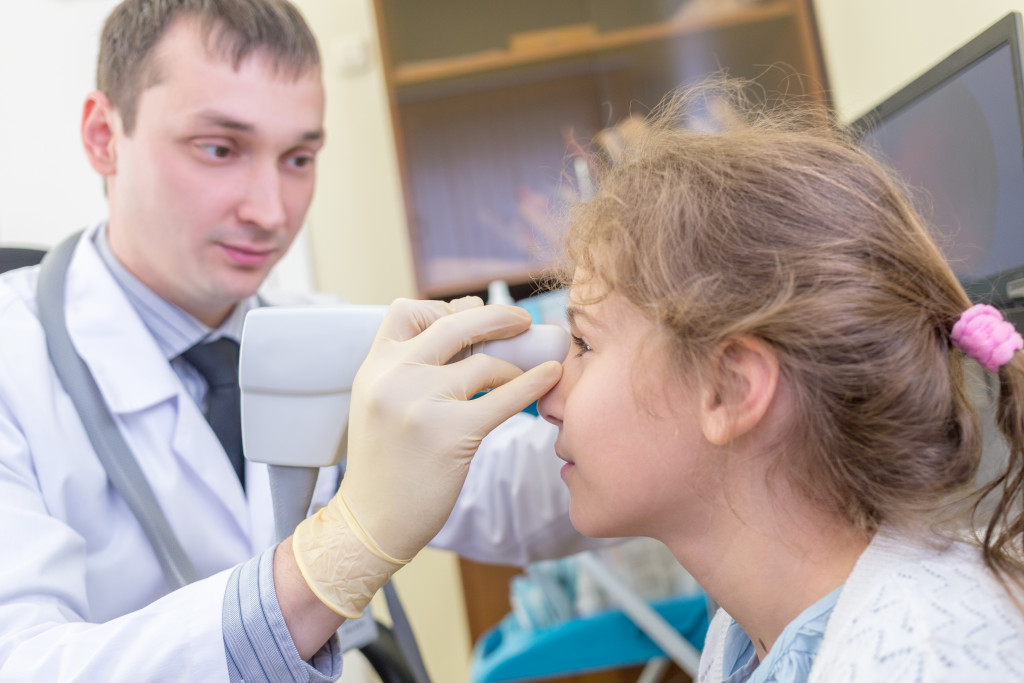Developmental delay is a condition that affects a child’s physical, cognitive, communication, or social development. It can affect any area of development, and if you suspect that your child may have a developmental delay, it is important to seek medical help as soon as possible for a proper diagnosis and treatment. There are different types of developmental delays, and the symptoms can vary depending on the type of delay.
Some Common Symptoms of Developmental Delays Include:
1. Delays in Reaching Milestones
One of the most common symptoms of developmental delays is a delay in reaching milestones such as sitting up, crawling, or walking. A child with a developmental delay may take longer than other children their age to reach these developmental milestones.
2. Poor Fine Motor Skills
Children with developmental delays may also have poor fine motor skills. This means that they may have difficulty with activities such as writing, drawing, or using scissors.
3. Problems With Speech and Language Development
Another common symptom of developmental delays is problems with speech and language development. A child with a developmental delay may have difficulty speaking, understanding speech, or using gestures such as pointing or waving.
4. Poor Social Skills
Children with developmental delays may also have poor social skills. This means that they may have difficulty interacting with other children and adults. They may also have trouble understanding social cues such as facial expressions and body language.
5. Behavioural Problems
Behavioral problems are another common symptom of developmental delays. A child with a developmental delay may exhibit behaviors such as aggression, self-injury, or tantrums.
6. Causes Intellectual Disability
Intellectual disability is another common symptom of developmental delays. A child with an intellectual disability may have difficulty with activities such as learning, reasoning, and problem-solving.
It’s critical to get medical care as soon as possible if you feel your kid has a developmental delay. Developmental delays can be caused by various factors, including genetic disorders, congenital disabilities, and exposure to certain toxins or infections. Early diagnosis and treatment are essential for helping children with developmental delays reach their full potential.
A pediatric psychologist can help diagnose and treat developmental delays. A psychologist is a healthcare professional specializing in assessing and treating children with developmental delays. If you think your child may have a developmental delay, contact a pediatrician for an evaluation.
Diagnosis
No one test can diagnose developmental delay. Instead, doctors will use a variety of tests and observations to make a diagnosis. These may include:
1. Developmental Screening Tests
Developmental screening tests are brief tests that can help identify children who may have a developmental delay. These tests are not diagnostic, but they can help doctors determine if a more comprehensive evaluation is needed.
2. Developmental Assessments
Developmental assessments are more comprehensive than developmental screening tests, and they can help diagnose a developmental delay. These assessments are usually conducted by pediatrician or other healthcare professionals who specialize in child development.
3. Physical Examinations
A physical examination can help rule out other conditions that may cause symptoms similar to those of a developmental delay.
4. Imaging Tests
Imaging tests such as MRI or CT scans can help rule out other conditions that may be causing symptoms.
5. Genetic Testing
Genetic testing may be recommended if there is a family history of developmental delays or other genetic disorders.
Treatment
There is no one-size-fits-all treatment for developmental delays. Treatment will vary depending on the cause and severity of the delay. Treatment may include:
There are different tests that doctors use to figure out if a child has a developmental delay. These tests look at different areas of development, such as physical skills, thinking skills, language skills, and social skills.

1. Physical Therapy
Physical therapy can help children with developmental delays improve their physical skills. Physical therapists can help children with activities such as walking, climbing, and moving.
2. Occupational Therapy
Occupational therapy can help children with developmental delays improve their fine motor skills. Occupational therapists can help children with activities such as writing, drawing, and buttoning.
3. Speech Therapy
Speech therapy can help children with developmental delays improve their communication skills. Speech therapists can help children with activities such as talking, understanding, and reading.
4. Behavioral Therapy
Behavioral therapy can help children with developmental delays improve their social skills. Behavior therapists can help children with activities such as interacting with others, making friends, and following rules.
5. Medications
Medications can be used to treat some causes of developmental delays, such as genetic disorders or exposure to certain toxins.
6. Special Education
Special education programs can help children with developmental delays improve their academic skills. Special education programs are designed to meet the individual needs of each child.
Developmental delays can affect any area of a child’s development, and it is essential to seek medical help as soon as possible for a proper diagnosis and treatment. Treatment will vary depending on the cause and severity of the delay. If you think your child may have a developmental delay, contact a doctor for an evaluation.




